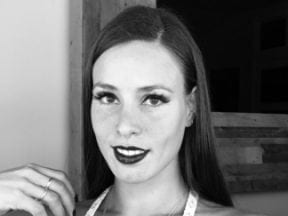Employees are a company’s greatest asset. Without the right people, a new ecommerce business would almost certainly fail. Refining the hiring process can help find the perfect candidate and reduce the amount of time wasted for all parties.
This is the sixth episode in my series of conversations on building an ecommerce business. The previous installments are:
- “Part 1: Choosing Partners,”
- “Part 2: Selecting Platforms,”
- “Part 3: Early Days,”
- “Part 4: Copywriting Matters,”
- “Part 5: Paid Acquisition.”
For this interview, I spoke with Ayman Al-Abdullah, president of AppSumo, a daily deals website for digital goods. We discussed AppSumo’s hiring process, and how it has evolved.
What follows is my entire audio conversation with Al-Abdullah and a transcript, edited for length and clarity.
Eric Bandholz: Tell about yourself and your business.
Ayman Al-Abdullah: I’m the CEO of AppSumo. We’re an ecommerce site for entrepreneurs to help grow and scale their business. We sell lifetime deals on digital products that help freelancers and solo entrepreneurs scale their companies well beyond six, seven, and eight figures. Before that, I started and sold a couple of businesses. I was once a product marketing manager at Microsoft.
Bandholz: You’ve taken this business from one person up to a team of 14.
Al-Abdullah: To give you a quick background, the company was founded by Noah Kagan. About four or five years into the business, they started to build their own internal software tools to grow their email list, which is the bread and butter of almost any ecommerce business. They were like, “We want to double down on this opportunity. We need someone to run the core business of AppSumo to keep the lights running while we focus on growing Sumo.”
So that’s where I came in. They hired me in early 2015, stating, more or less, “Hey, just come in and make sure the lights stay on while the whole company transitions to Sumo.” So I’ve been doing that since 2015.
Bandholz: Tell us about your hiring mistakes.
Al-Abdullah: Some of the biggest mistakes I made weren’t with AppSumo. They were in my earlier businesses. I did what almost every solo entrepreneur does: hire a virtual assistant. It felt like I was spending more time teaching the VA how to do the basic stuff. It saved no time for me.
When I stepped into AppSumo, I realized I should spend my time helping to grow the business — closing more deals. I ended up hiring a local intern, which I recommend to any solo entrepreneur. It’s a paid intern. We created a job description; we went to the University of Texas at Austin because we’re based in Austin.
We told the intern, to paraphrase, “We understand you’re a student. We’re willing to be flexible around your schedule. Meet with us for 10 hours a week, for 150 bucks. We’ll meet at a coffee shop.”
Bandholz: How do you find a motivated intern?
Al-Abdullah: It always starts with the job description. The best copy you can write is your job descriptions because the people that step into your company are the ones that are going to grow the business. Even now that we’ve got 14 full-time employees, every job description goes through an in-depth vetting process. We talk about the things that smart people enjoy, such as autonomy, the ability to work on interesting and unique challenges, the ability to have a seat at the table when it comes to strategy, and the ability for your ideas to be heard.
If you can convey that in your job description, you’re going to end up getting sharp candidates. Number two, you have to go out and source. A lot of times people think they’re going to post a job description and the best candidates are just going to fall into their lap. You have to make sure you’re knocking the doors down and finding those candidates. You’re selling your company over others because it’s a tough hiring environment.
Bandholz: Do you have concerns that your employees would leave, say, in three months to take that high paying job from Facebook?
Al-Abdullah: Money is always important. An entrepreneur has to figure out how to take money off the table. There is an incredible nonmonetary value from all the intangibles that you can get from a company like ours.
Bandholz: How do you manage growing pains while also trying to hire someone?
Al-Abdullah: The biggest mistake is rushing the hiring process. When you’re a small team, culture fit is so critical because one person can influence half the team and skew culture in the wrong direction. It takes three months at a minimum to find a good quality hire and six months if that hire has multiple skills that you’re looking for.
Bandholz: What happens after you’ve decided on a great job description?
Al-Abdullah: We have a well-thought-out process. Number one, sync with the hiring manager to identify the need; identify what will determine success for this candidate. It should be a very clear metric. The next step is drafting a job description that would get that ideal candidate excited.
The third step is what many companies skip out on: Don’t just post on job boards, but be proactive. The best candidates are already happy at a job. They’ve probably already received three or four promotions. The last thing they’re doing is looking for a job. So we require the hiring manager to source 100 candidates, usually on LinkedIn. For example, search on LinkedIn for “PPC expertise.” Then, we’ll filter to Austin because we hire locally. Then we’ll add first and second-degree connections. All of a sudden we’ve got 300 potential candidates.
Bandholz: Walk us through that first phone call with a candidate.
Al-Abdullah: For us, to save everybody’s time, the very first phone screen is via video. It usually lasts 10 minutes. This has drastically reduced the number of false positives that we’ve had in our hiring process.
One of the things we look for is if we were to hire this person, would she raise the average of the company? If not, we typically say no.
Bandholz: What happens after the screening call?
Al-Abdullah: We’ll typically meet for coffee — the candidate, the hiring manager, and me. Right after that, we can determine if the person is a solid option. If so, we want the entire team to meet her. The last thing is the candidate has to complete a take-home challenge, depending on the role.
Bandholz: How do you set compensation?
Al-Abdullah: We pay based on the market. We try to avoid the whole compensation conversation. It’s like, “Look, this is what you’d be making.” We want money to be off the table. We want it to be where you would be making roughly the same overall, if not more, than anywhere else.
See the next installment, “Part 7: Shipping and Fulfillment.”




